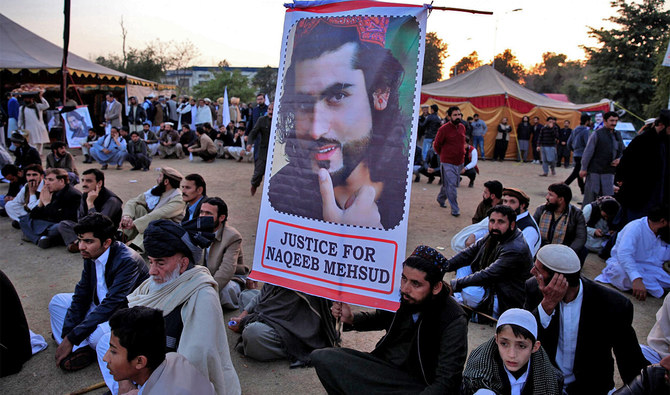KARACHI: Pakistan’s government plans to more than halve the buyback tariffs for net-metered solar power to save Rs4.3 trillion ($15.1 billion) over the next ten years, according to people privy to the matter.
Authorities at Pakistan’s energy ministry are working on a new solar policy that looks to change the current net-metering regime under which the cash-strapped government is buying back solar-generated electricity from domestic, commercial and industrial producers at Rs27 per kilowatt hour (kWh).
The buyback rates for large scale grid-connected solar plants like Quaid-e-Azam Solar Power (Pvt.) Limited, Pakistan’s first 100-megawatt solar utility set up by Punjab government, ranges between Rs9 and Rs11.
“The government is proposing to remove this anomaly and offer almost a uniform buyback rate for net-metered solar power in line with global standard practice,” said a Pakistani energy ministry official who is privy to the policymaking discussions but cannot share them with media.
He said officials at the ministry’s power division will present a revised solar policy to the federal cabinet “within a month,” proposing to reduce the buyback price for net-metered solar power by more than 60 percent to Rs10 per kWh.
The government plans to link the buyback rates with the national base tariff.
“The government is encouraging these domestic and other distributed solar producers and has allocated a quantum for them in the IGCEP (Indicative Generation Capacity Expansion Plan),” the official said.
“What this new net-metering policy will define is the question that at what rate the government should buy power from these distributed producers. We are working this out.”
The move would help the government save Rs4.3 trillion ($15.1 billion) in the decade to come, he added.
Prime Minister Shehbaz Sharif’s government is currently trying to revive Pakistan’s debt-ridden economy by introducing energy and economic reforms, backed by the International Monetary Fund (IMF) that approved a $7 billion loan for the South Asian nation in Sept., last year.
Promoting renewable energy sources like solar and wind has been part of the government’s plan to avoid costly oil imports that shrank five percent to $15 billion from July 2024 till May 2025, according to latest official figures.
The South Asian country has boosted solar electricity generation by over three times the global average so far this year, fueled by a more than fivefold rise in solar capacity imports since 2022, Reuters reported last month, citing data from global energy think tank Ember.
The combination of rapidly rising capacity and generation has propelled solar power from Pakistan’s fifth-largest electricity source in 2023 to its largest in 2025, Reuters said.
However, the country still relies heavily on fossil fuels and generates 56 percent electricity from thermal, 24.4 percent from hydel, 8 percent from nuclear and 12.2 percent from renewable energy sources.
According to Pakistan’s latest economic survey, the nation’s total installed electricity generation capacity stood at 46,605 megawatts from July 2024 till March 2025, showing 2 percent increase from 45,888 megawatts during the same period in the previous year.
“The increase can be attributed with the installed capacity of 2,813 MW from net-metering,” the survey said.
Shankar Talreja, head of research at Karachi-based brokerage firm Topline Securities, said Pakistan had been spending billions of dollars on the import of solar panels from China, thus pushing the country’s inflation-hit consumers from grid-based energy to solar photovoltaic plants many of them have now installed at their rooftops to ensure smooth and cheaper supply of electricity.
“The benefit of net-metering was quite attractive, [so] people started installing solar at their rooftops and they were also selling excess electricity to government at a price of over Rs20 per kwh,” Talreja said.
“Pakistan imports over $2 billion of solar [panels] every year and it was increasing at a higher rate, resulting in further reduction in utilization of grid energy.”
Pakistan has so far imported solar panels of 48,000 megawatts capacity, mostly from China, of which, the country is generating close to 6,000 megawatts power due to low efficiency (up to 21 percent) of these panels, according to officials.
“People are installing as many solar plants as possible and selling their surplus power to the government at a higher rate,” the energy ministry official said, adding the government is also considering 8,500 megawatts power generation quota for the distributed net-metering solar electricity that comes from domestic, agriculture, commercial and industrial producers.
“The buyback rate the power division is proposing stands equivalent to the tariff we are using to buy power from large-scale solar plants,” he said, adding that even K-Electric, Pakistan’s largest private utility that powers the country’s commercial capital of Karachi, had agreed to sell its solar power to the government at as much as Rs10 per kilowatt.
Last month, K-Electric signed a memorandum of understanding (MoU) with China’s Huawei Digital Power Pakistan to strategically collaborate for 300 MWh battery energy storage systems and electric vehicles charging infrastructure to accelerate Pakistan’s smart energy transition.
The off-grid solar solution was one of the major reasons for 4 percent decrease in Pakistan’s total electricity consumption that dropped to 80,111 gigawatt hours from July 2024 till March 2025, according to the economic survey.
Talreja said the government, sensing the costly nature of net-metering, has started discouraging and insisting people to stay on the national grid, and proposed to slash and link the buyback tariff with national base tariff, i.e. 33 percent.
“The government is trying its best to increase share of renewables in overall energy mix, however, its implementation gets tougher due to idle capacity of expensive thermal assets,” the economist said.
















